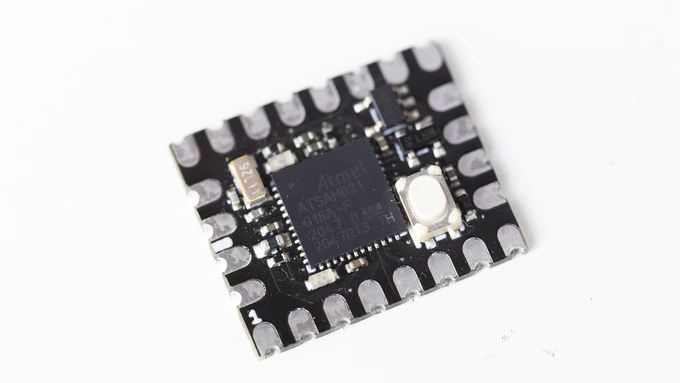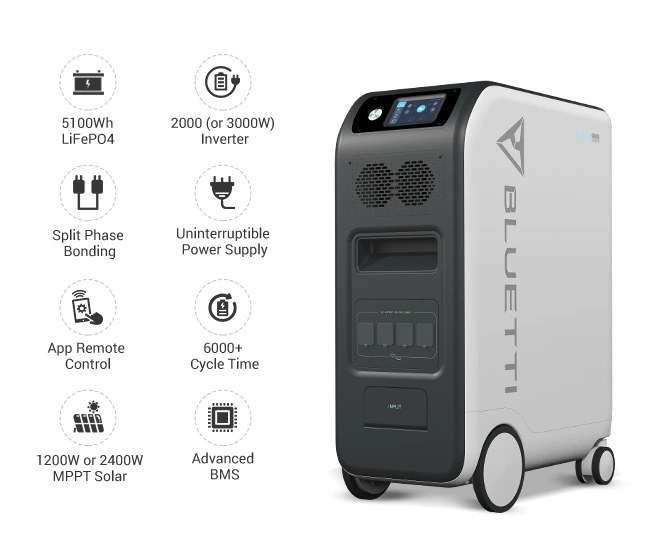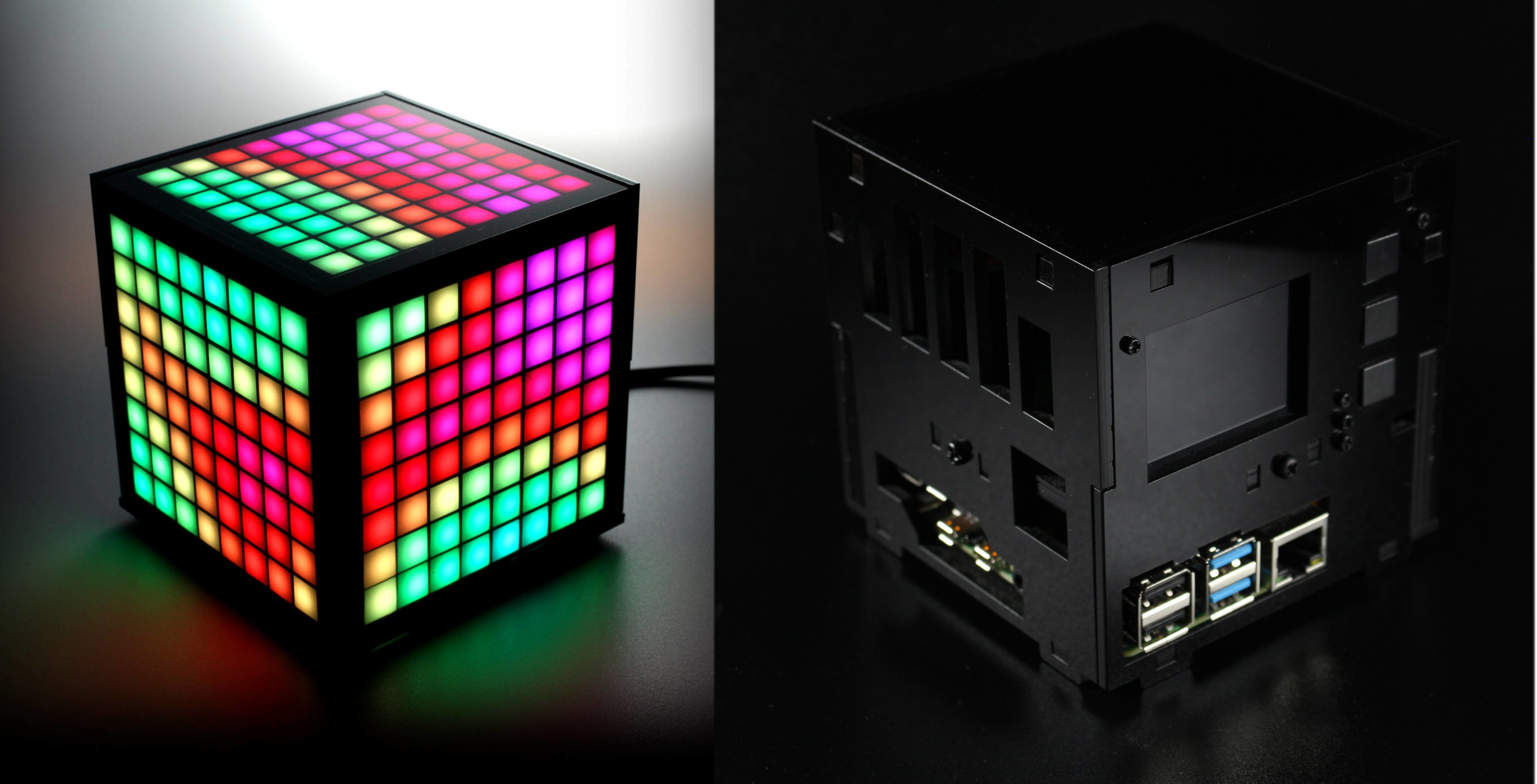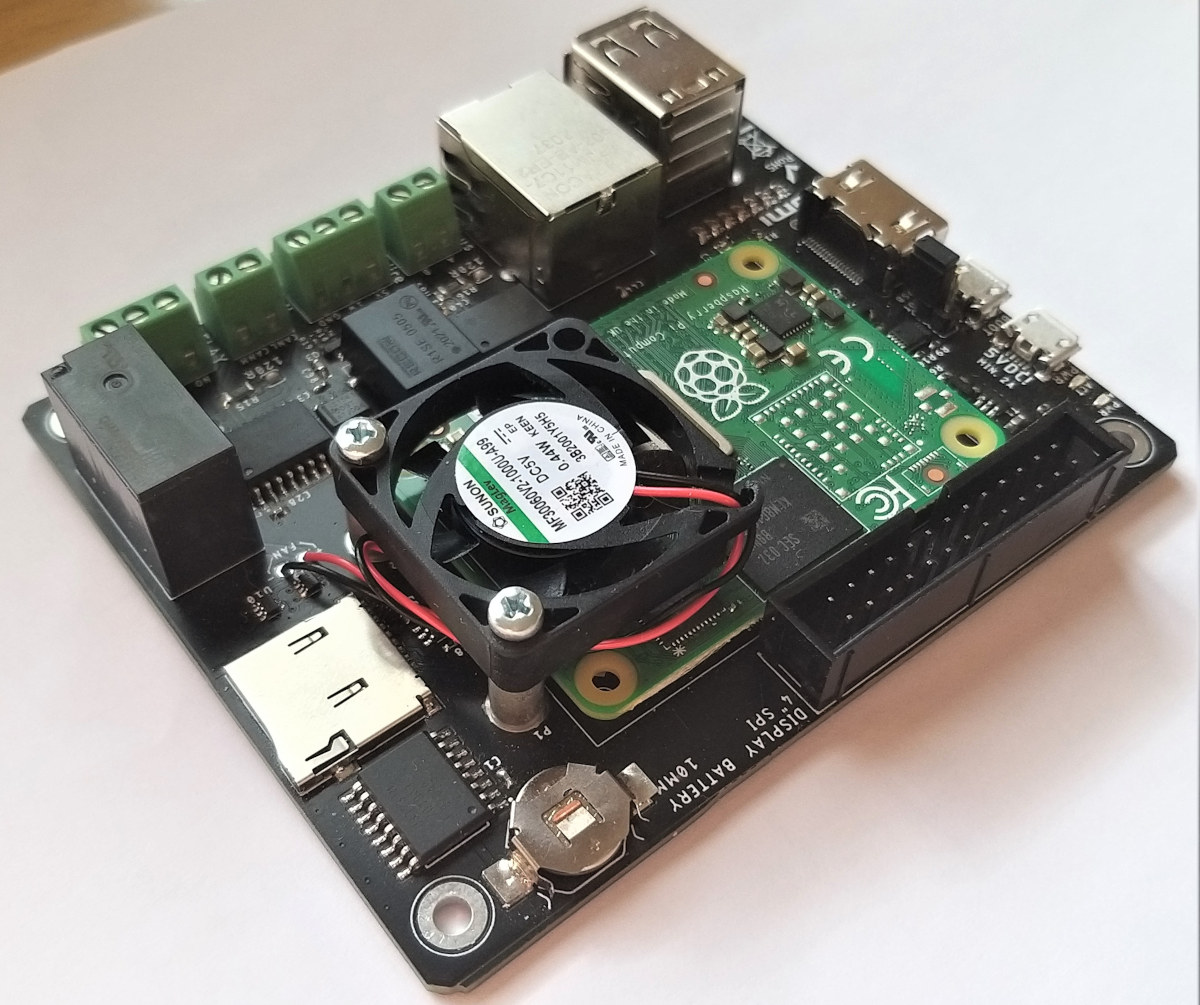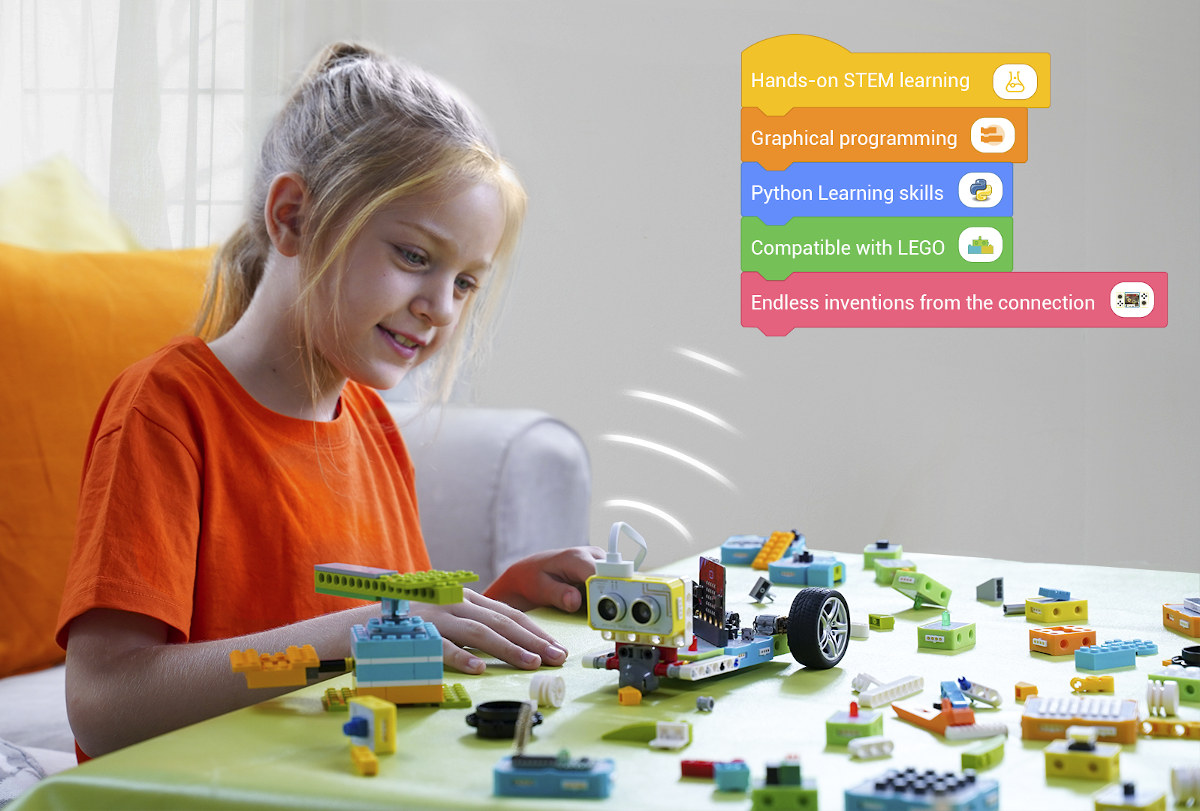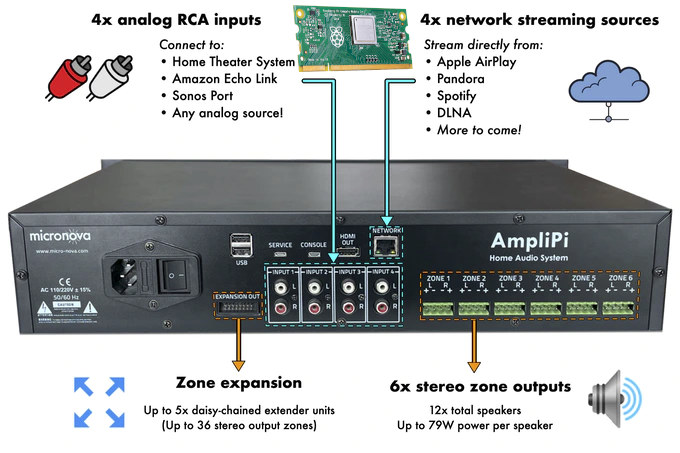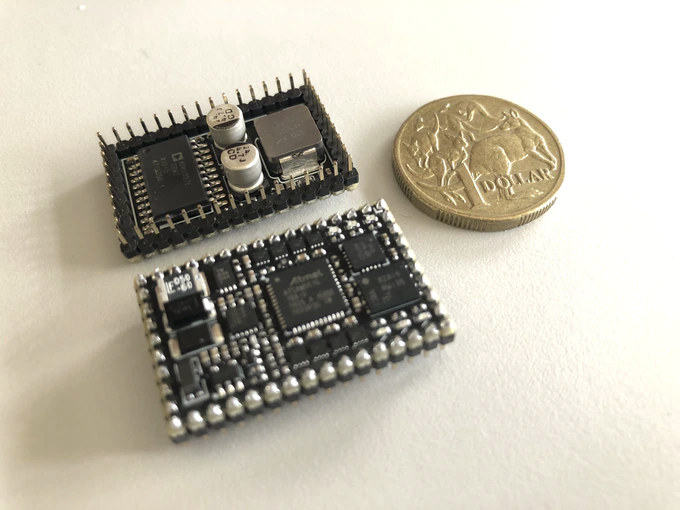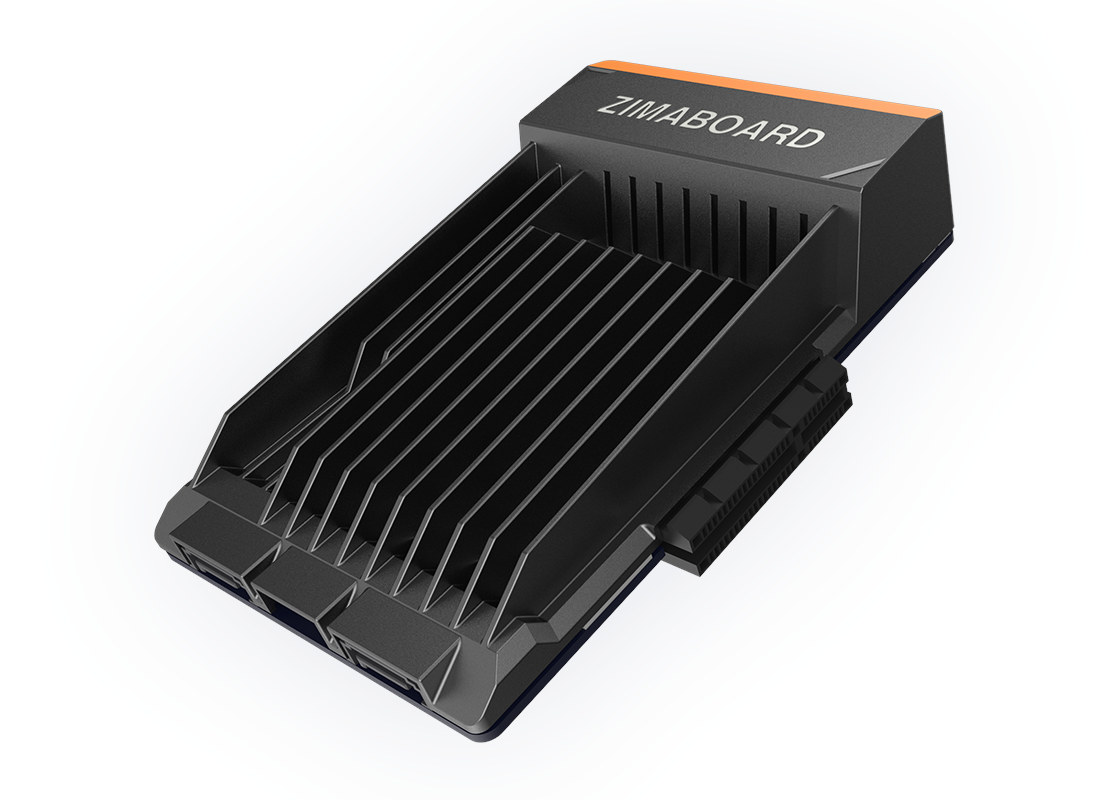We’ve covered a fair amount of compact Arduino Zero compatible boards based on SAMD21 Cortex-M0+ microcontroller over the years including Exen Proto, Wemos D1 SAMD21, or Seeeduino XIAO with the latter being the smallest of them all at just 23.5 x 17.5 mm. All those boards come with a USB port (Micro USB or USB-C) by default that makes it easy to work with, but may not be ideal to integrate into projects or final products. That may be why Hamish Morley designed the Minima Arduino Zero compatible module with a size even smaller than the XIAO board at 19.8 x 16.6 mm, and the USB interface exposed through 4 pads instead of a connector. Minima specifications: Microchip SAMD21G18A 32-bit Arm Cortex-M0+ microcontroller @ 48 MHz with 256KB of flash storage, and 32KB of SRAM Expansion – 24x castellated pads (2.54mm pitch) with 18 GPIO pins, including 5x analogue capable, […]
BLUETTI EP500 is a power bank & UPS for home appliances (Crowdfunding)
Many people are using a power bank to extend the battery life of their mobile device(s), and there are also laptop power banks which higher capacity and support for 12V and/or 19-20V besides the usual 5V. But BLUETTI EP500 & EP500Pro go up a notch as the systems aim at powering multiple home appliances or be used as UPS in case of power failure, or whenever you need to use tools or appliances away from the mains. BLUETTI EP500 & EP500Pro specifications: Control system based on Texas Instruments C2000 dual-core Arm+DSP real-time microcontroller AC Rated Power EP500 – 2000W (peak 4800W less than 500ms) EP500Pro – 3000W (peak 6000W less than 500ms) Power Input EP500 600W max, 100-264V AC via AC input – Charging time around 9 to 10 hours 1,200W max via PV input or T500 input (55-145V DC, 20A) – Charging time around 5 hours with solar panels […]
Raspberry Pi case embeds 192 programmable LEDs, speaker, microphone, and sensors (Crowdfunding)
Most Raspberry Pi enclosures are designed to protect your board from dust, provide easy access to ports, and in other cases, ease the installation of hard drives or SSDs. But Abstract Foundry’s LumiCube does much more, and just calling it a case or enclosure is an understatement, as while it does house a Raspberry Pi, it also comes with 192 programmable LEDs placed over 3 panels, a speaker, a microphone, as well as several optional motion & environmental sensors, and a small 2-inch LCD display. LumiCube specifications: Acrylic base 3x RGB LED panels with 64 programmable LEDs each Audio – 2W speaker and microphone Display (optional) – 2-inch 320×240 IPS screen for system parameters or other info (e.g. sensor data) or images. Note that it can now show the Raspberry Pi desktop Sensors (optional) – Light & gesture sensor, BME280 temperature, humidity and pressure sensor, BNO055 IMU (accelerator and tilt […]
Raspberry Pi CM4 Carrier Board comes with RS485/Modbus, CAN, 1-wire interfaces (Crowdfunding)
Another day, another Raspberry Pi CM4 carrier board. Just like the TOFU carrier board, CM Hunter carrier board for Raspberry Pi CM4 targets industrial applications, but in a different way, as it focuses on industrial communication protocols with Galvanically-Isolated RS485/Modbus, 1-Wire, CAN 2.0B, and together with more common interfaces like Ethernet, HDMI, USB, etc… CM Hunter specifications: Supported systems-on-module – Raspberry Pi Compute Module 4 / 4 Lite Industrial communication Interfaces Isolated RS485/Modbus (Profibus compatible) based on Texas Instruments ISO1410 controller Isolated CAN 2.0B based on Microchip MCP2515 controller and MAX14879 CAN transceiver Isolated 1-Wire via Maxim DS2482 I2C bridge Storage – MicroSD card slot Video Output – HDMI 2.0, optional 3.5-inch or 4-inch 480×320 LCD display with resistive touch connected over SPI Networking – Gigabit Ethernet RJ45 port and optional 802.11b/g/n/ac WiFi 5 plus Bluetooth 5.0 LE USB – 2x USB 2.0 ports, 1x micro USB 2.0 OTG port […]
Crowbits magnetic blocks for STEM Education work with Arduino, Micro:bit, ESP32, and Raspberry Pi (Crowdfunding)
Elecrow develops and manufactures electronics products for the maker market, and in recent years entered the STEM education market with products such as CrowPi2 Raspberry Pi 4 education laptop that I reviewed last year. The laptop integrates plenty of electronics modules, and students can learn Scratch visual programming as well as Python programming with the educational software running on the laptop. The company has now launched Crowbits magnetic electronic blocks for STEM education, and compatible with Arduino, ESP32, Raspberry Pi, and Micro:bit boards. There are over 80 programmable electronic magnetic modules and Lego bricks, with three different sizes ( large, middle, and small modules) of different colors with blue used for power control and logic control, green for output, yellow for input, and orange for advanced programming. Out of the 80+ modules, around 30 can be used without programming at all. Elecrow provides 5 kits to let users learn basic […]
AmpliPi – A Raspberry Pi-based whole house audio amplifier (Crowdfunding)
Micro Nova has put together an open-source, whole-house audio amplifier called AmpliPi based on Raspberry Pi Compute Module 3+. It is capable of streaming four independent sources to 6 stereo output zones, expandable to up to 36 stereo output zones through daisy-chained extender units. AmpliPi specifically supports inputs from four networking streaming sources including AirPlay, Pandora, Spotify, and DLNA, as well as four analog RCA inputs for your media appliances. AmpliPi key components and features: Controller Board Carrier board fitted with Raspberry Pi Compute Module 3+ and PCM5102A & CM6206 audio DACs. It also communicates over I2C with the STM32 MCU on the Preamp board (see below) to control the muxing and amplification systems. Interfaces 10/100M Ethernet port HDMI 1.4 output 2x USB 2.0 ports, plus one internal USB port Service and console ports for maintenance and/or debugging. Preamp Board Board equipped with a 6×4 audio matrix switching system and […]
microZERO is a compact, Arduino compatible Microchip SAMD21 module (Crowdfunding)
SRKH Designs’ microZERO is a tiny, Arduino compatible module based on Microchip SAMD21 Arm Cortex-M0+ microcontroller for applications such as drone control, mobile platforms such as cars, trucks, boats and bikes, and other products working in demanding environments. The company has also designed two baseboards, namely Dev Board A with RGB color high resolution IPS display and the more classic Dev Board B, both mostly following Arduino UNO form factor to get started with development and/or evaluation. microZERO specifications MCU – Microchip SAMD21G18 Arm Cortex-M0+ @ 48 MHz with 256KB flash, 32KB SRAM Storage – 16MB SPI flash memory for additional storage and remote firmware upgrades I/Os 32x protected IO with 6x ADC, SPI, I2C, 6x PWM, TCC, USART, 1-WB, I2S, and USB 1 Mbps CAN controller with fully isolated and filtered CAN transceiver for maximum signal integrity 2mm pitch footprint Security – Microchip ATECCA508/608 software protection encryption IC Misc […]
ZimaBoard Intel Apollo Lake SBC and micro server goes for $69.99 and up (Crowdfunding)
We’ve had our fair share of low-cost x86 SBCs in recent years, mostly based on Intel Cherry Trail processor, with the likes of Atomic Pi and Rock Pi X. Ice Whale Technology has come up with its own low-cost Intel single board computer with ZimaBoard “single board server” as it mostly has network storage applications in mind, but with a 4K capable mini DisplayPort connector it could also be used as a standard SBC or mini PC. There are two versions of the board both with Apollo Lake processors: ZimaBoard 216 with a dual-core Celeron N3350 coupled with 2GBRAM and 16GB eMMC flash, and ZimaBoard 832 powered by a quad-core Celeron N3450 with 8GB RAM and 32GB storage. Both ZimaBoard SBC shares most of the same specifications in terms of I/Os: SoC – ZimaBoard 216 – Intel Celeron N3350 dual-core processor @ 1.1/2.4GHz (Burst freq.) with 12 EU Intel HD […]


